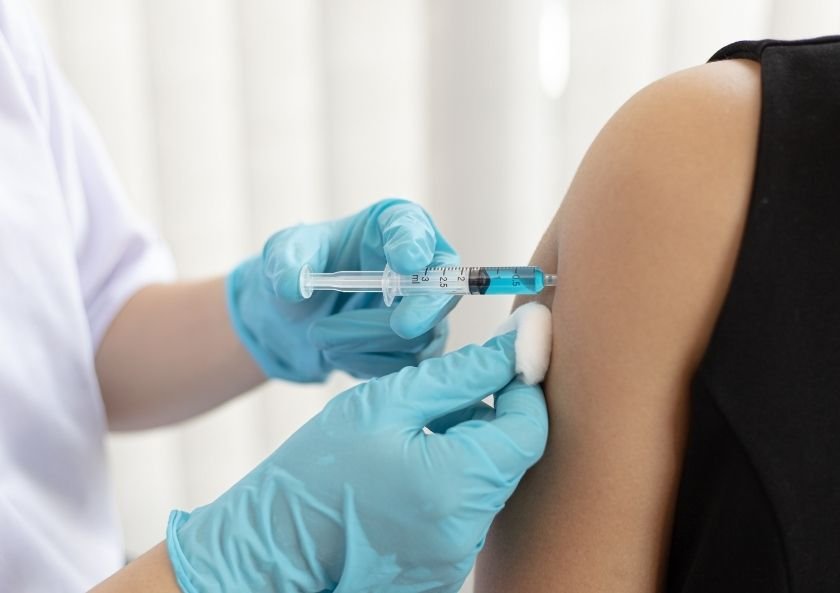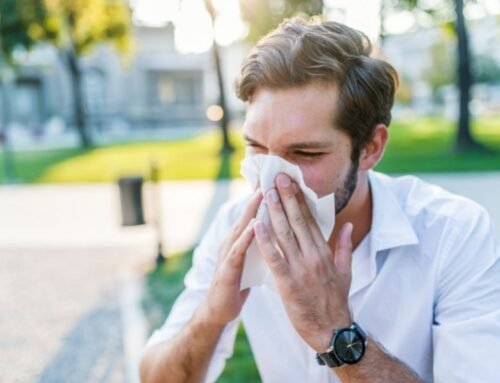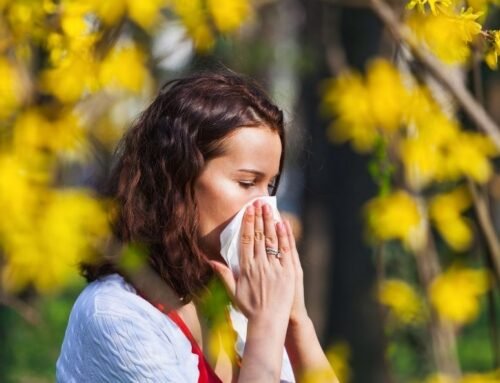Allergy vaccine (immunotherapy) is the most effective method in the treatment of allergic rhinitis, allergic asthma, allergic conjunctivitis (eye allergy) and bee allergy. Today, the only treatment modality that has the potential to stop the progression of allergic rhinitis to asthma is allergen-specific allergy vaccine. With allergy vaccines, a treatment approved by the World Health Organization (WHO) by allergists, allergic diseases can be stopped and its progression can be prevented.
Allergy Vaccines (Immunotherapy)
Allergy vaccines (immunotherapy) caused by the controlled and regular administration of allergens are the most effective method in the treatment of allergic rhinitis, allergic asthma, allergic conjunctivitis (eye allergy) and bee allergy.
In allergic rhinitis, the best treatment method that removes the complaints of the disease is vaccine therapy (immunotherapy) and it is also the only treatment method that can prevent the progression of the disease and the development of asthma. Allergy vaccines have the ability to treat allergic disease and also have a long-lasting protective effect after treatment is terminated.
Who Can Benefit from Allergy Vaccines (Immunotherapy)?
Allergy vaccine therapy involves injecting the patient in increasing doses of allergens that cause allergy symptoms. It is appropriate to start treatment after determining the appropriate allergens and concentration together with allergy skin tests and other tests performed by allergists.
Studies have shown that allergy vaccines can be effective in the following diseases:
- Allergic asthma
- Allergic rhinitis and conjunctivitis
- Insect allergy (Bee Allergy)
- Atopic dermatitis (in some groups)
Allergy vaccines have been shown to be most effective in allergic rhinitis, asthma and bee allergy. Apart from these, there are studies showing that it has an effect on patients with atopic dermatitis as well as house dust, mold or pollen allergy.
Currently, immunotherapy is not recommended for food allergies, and although research on oral desensitization for food allergies continues in the United States, strict avoidance of the food that causes allergies is currently recommended.
How are Allergy Vaccines (Immunotherapy) Made?
When a decision is made about whether to be treated with allergy vaccine (Immunotherapy), it is also necessary to determine how immunotherapy will be performed. Today, sufficient efficacy has been shown only in studies on subcutaneous subcutaneous (SCIT) or sublingual IT (SLIT) application. Therefore, it is used routinely. Immunotherapy can be given as subcutaneous (SCIT) and sublingual drops (SLIT) or tablets.
Who Can Do Allergy Vaccine (Immunotherapy)?
Treatment with allergy vaccines should be carried out by allergist physicians equipped with appropriate personnel and equipment.
In order to become an allergist, it is necessary to complete his education in the department of internal diseases/pediatrics/chest diseases and dermatology in our country, and then to receive training in the allergy department, which is a minor branch above the main branch, for 3 years after passing the allergy higher specialty exam. After allergists receive training in the diagnosis and treatment of all kinds of allergic diseases, they are entitled to receive their diplomas as allergists.
In allergy vaccines, which are the most effective treatment for allergic diseases, it is the duty of allergy specialists to choose the right allergen, start with the right doses, and then follow up.
As a result;
Allergy vaccines (immunotherapy) are the most effective method in the treatment of allergic rhinitis, allergic asthma, allergic conjunctivitis (eye allergy) and bee allergy.
Allergy vaccines are the only treatment that can change the course of the disease.
In allergy vaccines, a certain allergen is given to your body in gradually increasing doses, and the development of immunity or tolerance against the allergen is provided.
Today, only subcutaneous (SCIT) or sublingual IT (SLIT) application is performed.
Allergy vaccines that can be started after the age of 5 are the most effective treatment that can be applied in adulthood.
Treatment with allergy vaccines should be carried out by allergist physicians equipped with appropriate personnel and equipment.






